- Home
- Especially for Kayakers
- Kayak Fishing Tips
12 Top Kayak Fishing Tips
These kayak fishing tips for both kayak fishing newbies and old hands alike will help keep you safe and improve your catch rate.
But first, a confession. I'm not a kayak angler - well not yet anyway - but I'm seriously thinking about becoming one.
However as an experienced ocean sailor and angler, I'm very much aware of what an unforgiving mistress the sea can be.
So before rushing out and buying the wrong kayak, fitting it out in the wrong way and generally making all the mistakes that beginners make, I've been doing some research.
The results of all the advice I've been given I thought might be interesting to others in the same, er, boat.
So here are the kayak fishing tips freely given to me by knowledgeable and experienced kayak anglers:~
Kayak Fishing Tip #1 ~ Choosing a Fishing Kayak
An Off-the-Shelf Yak?
You can save yourself a lot of work if you buy a yak that has been designed and fitted out specifically for fishing. Fishing kayaks such as these will have bespoke fishing gear attachment points and recessed rod holders built in.
Or a Do-It-Yourself Yak?
But you may wish to get a standard kayak and customise it for your own particular fishing requirements. If you do decide to go down this route - and many do - always use marine grade stainless steel fittings. Not A2 grade which isn't corrosion resistant enough. Go for A4 grade - it's double the price of A2 but worth it in the long run.
A Sit-On-Top (SOT) or Sit-In Kayak (SINK)?
A SOT is the preferred type for saltwater kayak fishing, as they can carry the requisite gear and are easier to get back onto if you fall off. Also, they're usually cheaper than SINKs.
Try Before You Buy
However good the deal seems to be, you should always test-paddle the kayak before you buy it.
Although recommendations by experienced kayak anglers are valuable - in as much as they'll eliminate the dogs, and enable you to hone in on a short list of likely contenders - the final choice must be a personal one, made in the knowledge of the conditions you'll be using it in.
The Best Kayak Colour
Colour choice is all about visibility at sea - fashion doesn't come into it. The most visible colour is yellow, with red and orange almost as good.
Blues and greys are least visible, and white kayaks are practically invisible in choppy seas. And camouflaged versions make no sense at all.
Kayak Fishing Tip #2 ~ The Plastic Storage Crate
A free-draining plastic storage crate is better than a solid sided one as it won't fill with water, or offer as much resistance to the wind.
The popular choice is to adapt a plastic milk crate with a handy insert like the one shown here.
Kayak Fishing Tip #3 ~ Not All Paddles Are the Same
Use good touring paddles with asymmetric blades rather than a general or white-water paddle. It really is a good idea to get the best paddle you can afford, remembering that these hi-tech lightweight models will reduce fatigue when paddling.
Use a paddle leash to keep it attached to the yak. Then, if/when you fall off, by keeping hold of the paddle you still be attached to the yak. Lose your paddle and you could find yourself up that well-known creek!
Kayak Fishing Tip #4 ~ Benefits of Braid Line
Thin, strong, non-stretch braid lines
are ideal for kayak fishing. Not only do they allow the angler cast
further and put more action into his lures, they allow the use of
lighter sinkers when baitfishing. But before you buy a rod for use with braid line, take a look at this article...
Kayak Fishing Tip #5 ~ Who Needs Bait?
Fishing with bait can be a messy business, and first of course you've got buy or collect it. So why not dispense with it altogether, and use lures?
Many kayak anglers have done just that, and have become specialists in the three primary lure fishing techniques - baitcasting, trolling and jig fishing.
Kayak Fishing Tip #6 ~ Look After Your Gear
Saltwater is corrosive stuff, so always rinse your gear in fresh water after every trip. Allow to dry, then spray lightly with water repellent lubricant.
Kayak Fishing Tip #7 ~ Protection Against Ultra-Violet Light
UV has a damaging effect on both you and your kayak, and there's lots of it out at sea. In use of course, there's nothing you can do to protect your yak from it, but it should be stored undercover at other times. But there's plenty you can do to protect yourself - and you must!
The dangers of sunburn are well known, with skin cancer becoming an increasingly common result. So go heavy on the sun protection cream and wear a wide-brimmed hat.
Kayak Fishing Tip #8 ~ Handle with Care
Use a trolley when moving the kayak around ashore. It will save the underside of the yak - and your back!
If you use ratchet straps to secure your yak to your car's roof rack, be careful not to over-tighten them, as you can easily damage the yak.
Use the moulded in straps, toggles and carry points when lifting the yak. These are designed as strong-points and positioned to spread the load without distorting the yak.
Kayak Fishing Tip #9 ~ Stay Safe!
The most important of all these kayak fishing tips is to stay safe. Let someone ashore know you're going out in your yak, and what time you expect to return. It's worth carrying a mobile phone so you can let them know if you're delayed - before they call the coastguard. The mobile should work up to around 10 miles offshore before you lose the signal, but don't rely on it.
Which is why you should always carry a hand-held, waterproof VHF radio and ideally one which floats. Not only will this device enable you to communicate with other marine craft, it will also put you into direct contact with the coastguard.
There's an approved operating procedure you'll need to know, and in
most countries you'll need a license before you're legally allowed to
use it.
Hopefully you'll never need to use it, but when you do you'll not regret your investment in an inshore flare pack.
For safety reasons it's best to fish in company, and the best way of finding a kayak fishing buddy is by joining your local kayak fishing club.
Kayak Fishing Tip #10 ~ Stay Afloat!
No kayaker is going to venture out to sea without a Personal Flotation Device, no matter how strong a swimmer he is.
Kayak anglers should go for a PFD with pockets for your fishing gear - VHF radio, long-nosed pliers, knife, lures etc.
Make sure the PFD provides enough buoyancy both for you and all the stuff you've got in it.
Kayak Fishing Tip #11 ~ Keep a Weather Eye Open
Always, but always, get a local weather forecast before setting out - and leave your VHF switched on to receive regular updates. And keep a weather eye open, as short, sharp squalls often evade the forecast.
Click Here for UK Weather Forecasts and Tidal Data for your area ...
Kayak Fishing Tip #12 ~ Understand, and Use The Tides
One of the most important tips is to understand how the tides will affect your fishing session. This is vital not just from the fish catching aspect, but from a safety angle too. You must know:~
- At what time will the tide turn?
- Is it a spring or neap tide?
- What is the tidal range for the day?
- What will be the strength and direction of the tide in your specific location?
The starting point for all of this is a set of tide tables for your local area, together with the appropriate tidal atlas.
And it clearly makes sense to plan your fishing your fishing trip such that your paddle home is downtide...
Recent Articles
-
Sea Fishing Rods and Reels Must Be Compatible for a Balanced Outfit
Mar 08, 21 08:30 AM
A quality reel fitted to a quality rod doesn't necessarily make it a quality outfit. Your fishing rods and reels have to be properly matched if you're to get the best out of them, and here’s how -
Essential Lure Fishing Tips That All Saltwater Anglers Should Know
Mar 08, 21 04:51 AM
Which single lure fishing tip applies to trolling, jigging, baitcasting, spinning, fly fishing and any other branch of lure fishing? Well, it is the one at the top of this list -
Vital Jig Fishing Tips That You Really Cannot Afford To Miss!
Mar 07, 21 10:20 AM
Essential jig fishing tips to help you select the right lure for successful jig fishing, together with the techniques required to get the most out of your jig fishing outfit
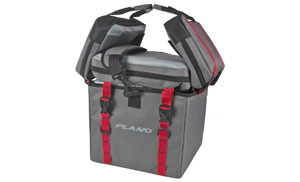
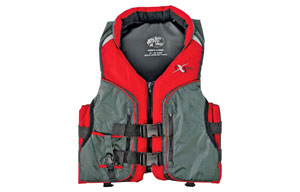
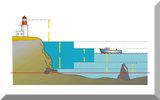
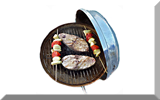
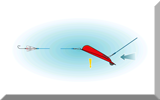
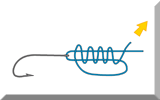
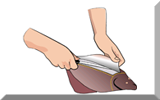
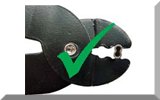
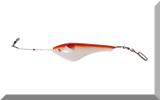
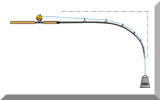
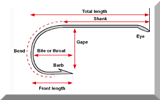
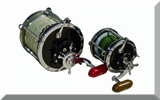
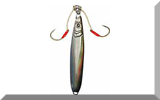
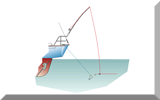
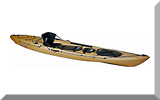
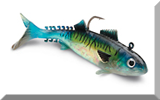
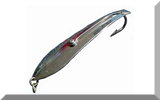
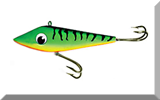
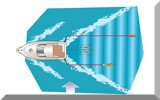
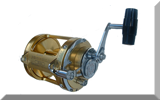
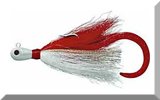
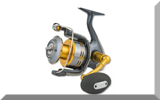
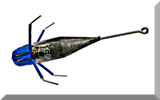
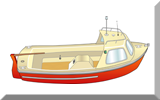
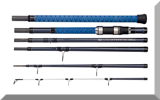
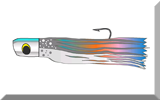
New! Comments
Have your say about what you've just read! Leave me a comment in the box below.